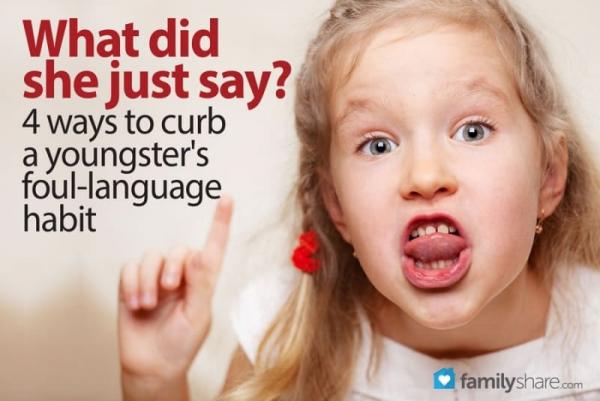
My son, now 5 years old, is a living legend around our neighborhood. On two different occasions, he's chosen to repeat a specific "choice" word. However, his notoriety does not originate from his use of the word, but where he chooses to use said diction - at church.
In our house, we don't swear; or at least I didn't think we did. We're not completely innocent. If a "swear word" is uttered, it's usually preceded by a relatively serious occurrence, such as an injury or the surprise visit from an in-law (though I elect to not share from which side of the family).
Several months ago, my sister and her family from Boston was visiting and staying with us. On Sunday morning, during one of her stays, both of our families all sat quietly on the church bench awaiting instruction. It was then, during a transition where only silence, and the occasional baby coos could be heard, my son elected to share with me a thought, which he expressed proudly in his outside voice, "Dad, when I see a 'Bad Guy' I will say, 'Oh S***!'"
Laughter, from three rows back, passed our bench and another two pews in front of us enveloped our area before I could thrust my hand over my surprised son's mouth; in an effort to thwart additional explanation.
When dealing with aΒ child who utters "less than attractive words," no single measure can break all children of the habit. However, here are a few ideas that have worked for us and our kids:
1. Try not to overreact
-
Remember, they don't necessarily know that it's a "bad word" until you explain it.
-
As the son of a psychotherapist, one of the things my father always asked me, when I misbehaved, "Are you not getting enough attention?" When we give something enough attention now, it registers with our children that they can use the same method to bring focus when the child feels ignored.
2. Quickly (but calmly) explain why your child should not say that word
-
However, in some cases when you say to your child, "That's not a nice word," their interest is peaked and they've now logged this information in their little heads as something they can use at a later date.
-
For my son, this works. He isn't looking for trouble; however, my 3-year-old knows what words are bad, and she will consciously choose to say them (mostly under her breath).
3. Give your child an alternative word
-
"Hey, that's not a nice word. Instead of that, why don't we choose a different word like darn or shoot? Would one of those be better?"
-
Allow them to make up their own funny word (just make sure it's socially acceptable). For example, my son said, "Chicken Toot" for a little while. It was annoying, but better than the alternative.
4. Do not ignore the behavior if you want the behavior to change
- The only thing worse than ignoring the behavior is to threaten to take action if the behavior persists and then NOT follow through.
I was in a hotel, preparing for meetings the next day when I got a surprise phone call from my childhood best friend. We chatted for a minute about the weather in one another's locations when he said, "Oh, I heard what Landon said in his Primary class."
Surprised by the comment, considering my buddy literally lived an entire state away and I hadn't heard a report of anything humorous from his teacher or his mother (my wife) so I inquired.
It was then that he shared with me the narration given to him, from his wife, who heard it from my son's teacher.
The story, without all the details, pertained to a third member of the Godhead. You know, "The Holy"¦ The Holy"¦ Come on kids, help me out, here"¦ what's the answer I'm looking for?... The Holy"¦"
My son, who's story sounds like an urban legend (but it's true), pompously answered, "Holy S***!"
Rome wasn't built in a day.

